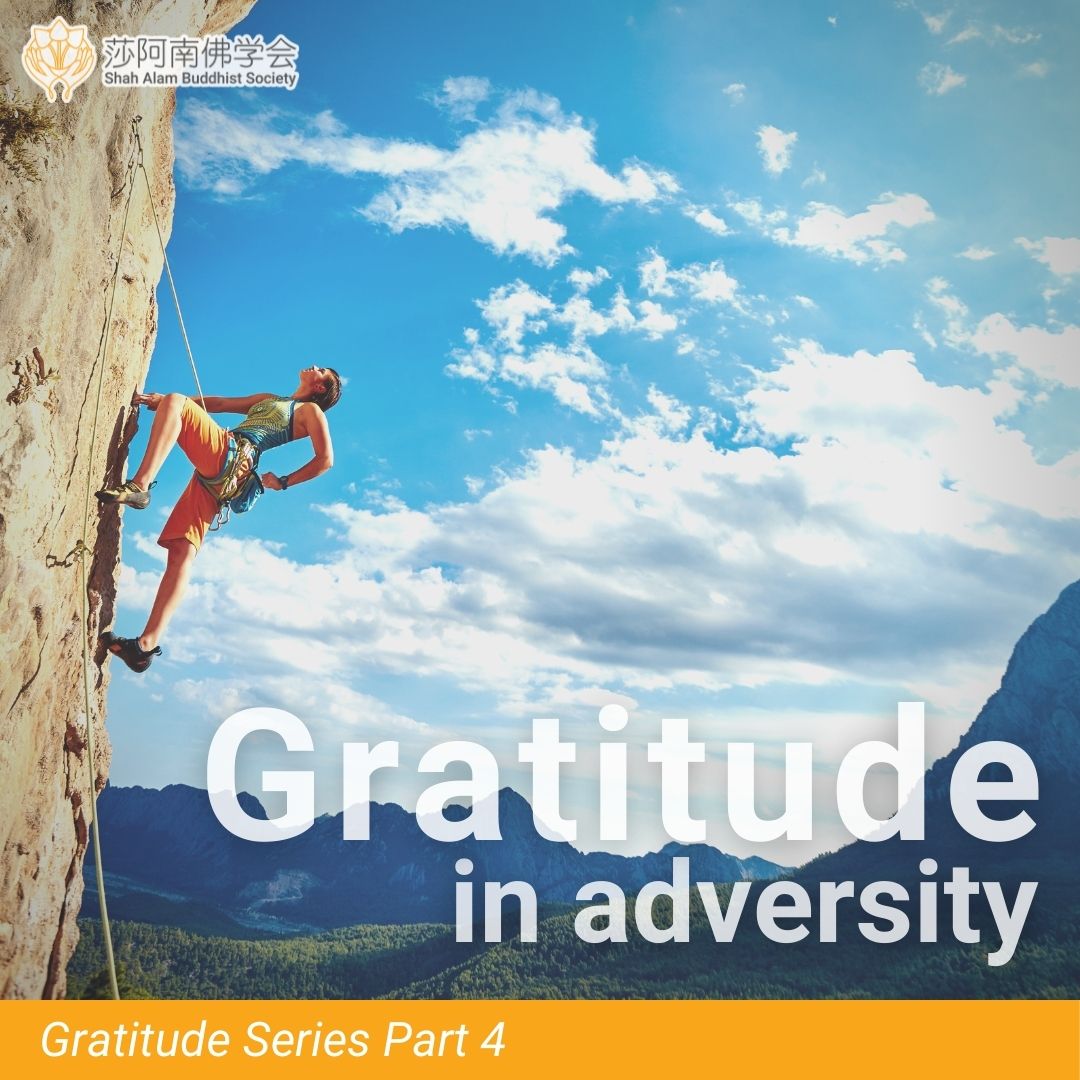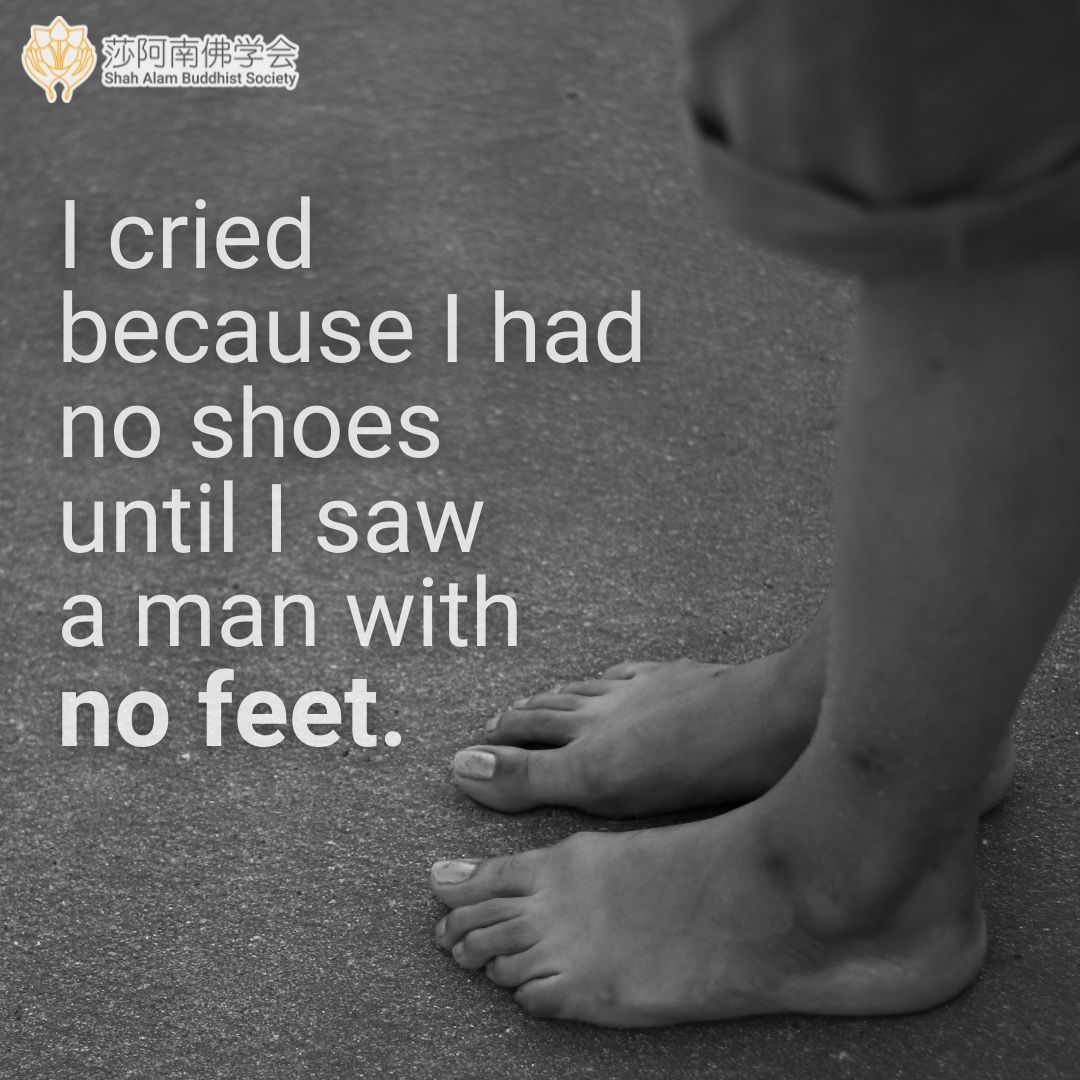Gratitude in adversity [Gratitude Series Part 4]

Read part 1 and part 2 and part 3 if you haven’t already
It is easier to practise gratitude when things are going smoothly and well, but what about when times are truly bad? How do we practise gratitude then? In this last article in the Gratitude Series, let’s see how to practise gratitude in adversity.
Gratitude provides us the ability to notice, acknowledge and appreciate for the good parts of any situation, relationship, or experience. Thus, gratitude is to be cultivated as a habit or attitude of the mind, NOT dependent on conditions – it’s really the difficult times that teach us the most! Difficult times create circumstances where growth or realisation can occur in ways it can’t while sailing in smoother waters.
For example, sickness teaches us to appreciate our body, life and our loved ones. It is when we are sick that we realise who truly cares for us and what truly matters in life. Financial crisis teaches us to be frugal, far-sighted and careful in our expenditure. It is when we are broke that we see who our true friends are. So, even in adversity, we can find things to be grateful for – that is if we look in the right direction.

Life is full of blessings. Most of the time, we are just too blind to see them. Hard times are often blessings in disguise. Truth be told, sometimes the hardest lessons to learn are the ones we need the most. Don’t you agree?
The Dalai Lama says that we should be thankful for our ‘enemies’, for they have much to teach us about equanimity, patience, forgiveness and loving-kindness. In Tibet, monks and nuns even offer prayers of gratitude for the suffering they have been given: “Grant that I might have enough suffering to awaken in me the deepest possible compassion and wisdom.” Truly, practising gratitude during challenging times provide us the opportunities to learn, grow and transform into better selves.
Final thoughts
Gratitude is a powerful tool towards happiness. It softens adversities, prevents us from taking things in our lives for granted, changes perspective, promotes mindfulness, redirects negativity into positivity, and deepens the sense and purpose in life. Practising small, grateful acts every day can uplift us, make a difference for others and help change the world.
—
Read the previous posts in the series:
Gratitude – the simplest road to happiness [Part 1]
What the Buddha taught about gratitude [Part 2]
How to practise gratitude? [Part 3]


